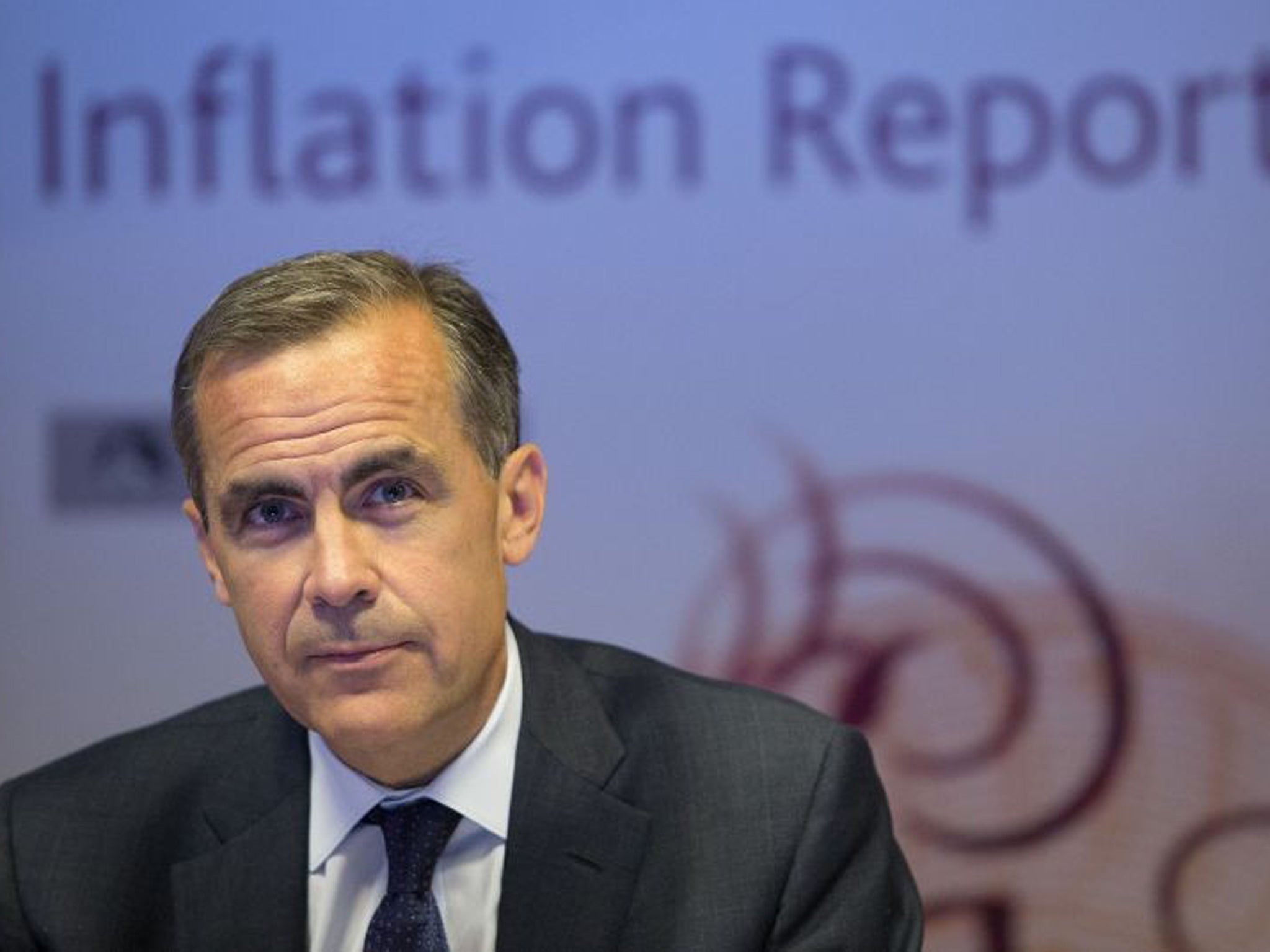Julian Knight: Mark Carney's economic forecast could be under the weather
The Bank of England Governor's predictions may prove less reliable than the Met Office

The famous economist JK Galbrieth once said that economic forecasters were put on this earth to make weather forecasters look good.
This week we had the slick, new Governor of the Bank of England, Mark Carney setting out his own blueprint for the UK economy and monetary policy.
We have been here before – many, many times. You can probably recall Gordon Brown's golden rules on government expenditure, only borrowing to invest (yet investment in Gordon Brown's worldview included much higher public-sector salaries) which was based on forecasting and we all know how that ended.
The Bank itself was minded to raise interest rates to cool lending – too late – just as the financial crisis was about to break. Of course, within a couple of months rates had in fact plummeted to 0.5 per cent to stave off a depression.
Historically, the UK economy is not good territory for forecasters. In 1979, at the inception of Thatcherism, The Economist newspaper predicted that the UK would suffer a very mild recession or flat growth – this was on the cusp of a major depression which saw millions of jobs disappear as UK PLC went through a very painful restructure.
Earlier in the 1970s the predictions for the UK economy were blown out of the water by successive oil crisis.
"Forward guidance", as Mr Carney's announcement was catchily called, may be fine in historically stable economies such as Ger- many and his own Canada, but in the UK I have serious doubts of its worth.
We may be a large economy and at times more dynamic than we give ourselves credit for, but ultimately we aren't stable as others.
Mr Carney may well learn that predictions he makes today will change faster than he could imagine with the economic weather.
The UK economy and monetary policy is almost the living embodiment of the old political refrain of "events, dear boy, events".
So if you are a saver or investor what should you draw from Mr Carney's crystal ball gazing?
Firstly, the impression gathered from the Governor's first few public utterances that rates could be heading upwards were wide of the mark.
In fact, he clearly signalled that rates will only tick up when unemployment falls back to around 7 per cent, which means 750,000 extra jobs need to be created. This all equates to a D-day for rates in early 2016.
The Government will be relieved, of course, as this takes a likely interest rate rise beyond the next general election. However, this is a further blow to savers and those looking to delay their annuity purchase.
What's more, by holding off interest-rate rises for so long, the Bank may have to raise them too far. It is undoubtedly better to raise the rate by a quarter per cent in the near term than one per cent in the medium term.
Then again, Mr Carney's forward guidance may never come to pass – not if history is any guide, and to be honest I'd take that over any economic forecast. It really is less reliable than the weather.
Hot air on payday lenders
I have had quite a bit of response to my column of a couple of weeks ago, reflecting on the Archbishop of Canterbury's "financial fatwa" to the payday loan industry.
Most seem to welcome the fact that the Archbishop is at least talking about issues that matter to the community rather than the flights of intellectual fancy which characterised his predecessor.
However, readers seem to lament the desirability of the credit union sector in competing with payday lenders.
Typical of the emails received are from Mr Paul Taylor, the chief executive of financial advice firm McCarthy Taylor who wrote: "There is no way credit unions should try and move into this space (compete with payday).
"The foundation of credit unions is the spreading of capital need over a number of modest savers, sharing their savings to help those who have solid need for lending. These are cautious investors and the application process reflects this.
"Payday borrowers are generally high risk and the default risk is equally high."
At the moment the opponents of payday are in my view thrashing about. There is a demand for this type of short-term credit which isn't being met and never will be by the credit unions.
It is time to get real over this, regulate the sector and encourage viable alternatives. Everything else is simply hot air.
Join our commenting forum
Join thought-provoking conversations, follow other Independent readers and see their replies
Comments